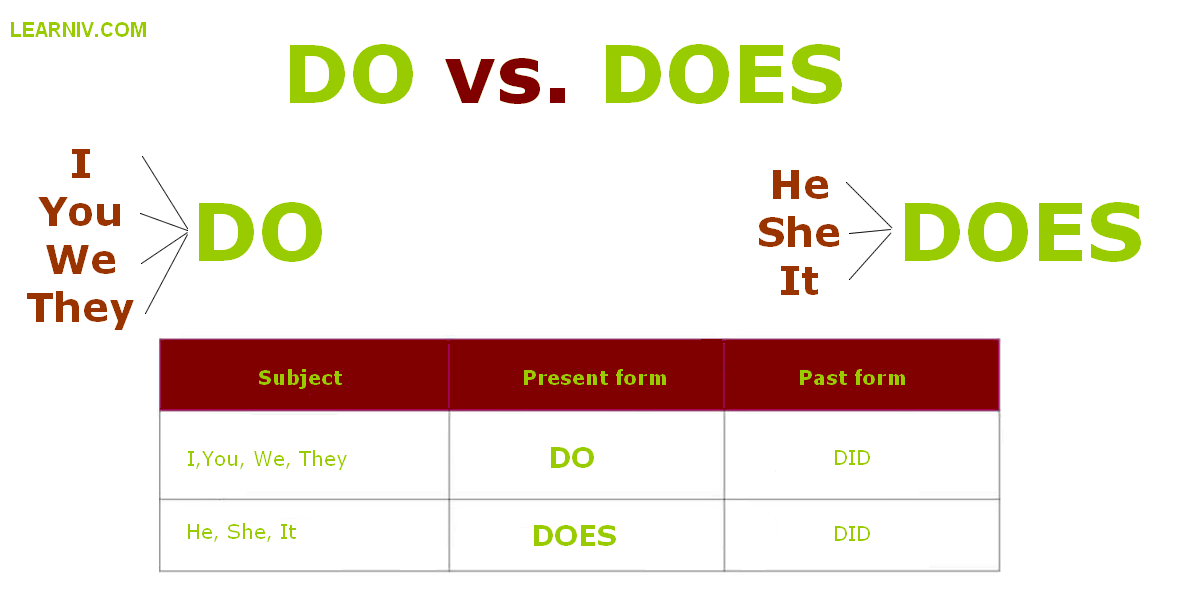AP Computer Science Difficulty: Complete Guide to Course Challenges and Success Strategies
Understand ap computer science difficulty levels
Ap computer science represent one of the near popular even challenge advanced placement courses available to high school students. The difficulty vary importantly base on which version you choose and your background preparation.

Source: acs.psu.edu
Two distinct ap computer science courses exist: ap computer science a (cCSA)and ap computer science principles ( (pCSP)ach present unique challenges and require different skill sets. Csa CSAus intemperately on java programming and object orient concepts, while csp CSPhasize computational thinking and broader computer science principles.
Ap computer science a challenge factors
Ap computer science a systematical rank among the more demanding ap courses. Students encounter rigorous programming concepts include inheritance, polymorphism, recursion, and complex data structures. The course demand strong logical thinking skills and mathematical reasoning abilities.
The college board report that CSA maintains lower pass rates compare to many other ap subjects. Students oftentimes struggle with debug complex code, understand abstract programming concepts, and manage time efficaciously during the practical programming portions of the exam.
Java programming language serve as the foundation for CSA, require students to master syntax, object orient programming principles, and algorithm implementation. Many students find the transition from block base programming to text base code specially challenging.
Ap computer science principles accessibility
CSP offer a more accessible entry point into computer science education. The course emphasize creative problem solve and explore how compute impacts society. Students work with various programming languages and tools quite than focus entirely on one language.
The CSP exam include both multiple choice questions and performance tasks complete during class time. This format allows students to demonstrate understanding through projects and research preferably than only through time programming exercises.
Pass rates for CSP typically exceed those of CSA, make it an attractive option for students new to computer science or those seek a broader introduction to the field.
Prerequisites and background knowledge
Success in ap computer science courses correlate powerfully with prior experience and mathematical preparation. Students benefit importantly from previous programming exposure, though it’s not purely require for either course.
Mathematical foundation requirements
Strong algebra skills prove essential for both ap computer science courses. Students regularly work with variables, functions, and logical operations that mirror mathematical concepts. Geometry and pre-calculus knowledge help with understanding algorithms and data analysis.
CSA specially demand comfort with mathematical thinking patterns. Students analyze algorithm efficiency, work with numerical data types, and implement mathematical formulas through code. Those struggle with algebra oftentimes find the programming logic concepts more difficult to grasp.
Prior to programming experience impact
Students with previous code experience typically perform advantageously in ap computer science courses. Familiarity with programming concepts like loops, conditionals, and variables provide a significant advantage during the initial learning curve.
Nevertheless, complete beginners can succeed with dedicated effort and proper study strategies. Many successful students start with no programming background but demonstrate strong problem solve skills and willingness to practice regularly.
Block base programming experience from platforms like scratch or code.org help students understand fundamental programming logic before tackle text base languages.
Course content and skill development
Ap computer science courses cover extensive material require both theoretical understanding and practical application skills. Students must master multiple competency areas to succeed on the comprehensive final exam.
Core programming concepts
CSA students dive cryptic into java programming fundamentals include data types, control structures, methods, and classes. The curriculum progress from basic syntax to complex topics like inheritance hierarchies and recursive algorithms.
Object orient programming concepts challenge many students initially. Understand classes, objects, encapsulation, and polymorphism require abstract thinking skills that develop over time through consistent practice.
Data structures form another challenging component. Students learn to implement and manipulate arrays, array lists, andtwo-dimensionall arrays while understanding when to apply each structure befittingly.
Algorithm analysis and implementation
Both courses emphasize algorithmic thinking and problem solve strategies. Students learn to analyze problems, design solutions, and implement efficient algorithms.
Search and sort algorithms receive significant attention in CSA. Students must understand how different algorithms work, analyze their efficiency, and choose appropriate methods for specific situations.
Recursion present particular difficulty for many students. The concept of functions calls themselves require a fundamental shift in think patterns that some students find counterintuitive initially.
Debugging and testing skills
Professional programming practices include debugging, testing, and code documentation form integral parts of both courses. Students learn to identify errors, trace through code execution, and consistently test their programs.
Debug skills develop gradually through extensive practice. Students initially struggle to identify syntax errors, logic errors, and runtime exceptions but improve with experience and proper guidance.
Exam format and assessment challenge
The ap computer science exams present unique challenges that differ from traditional multiple choice tests. Understand the exam format help students prepare efficaciously and manage time befittingly.
CSA exam structure
The CSA exam consist of two main sections: multiple choice questions and free response questions. Each section contribute evenly to the final score, require balanced preparation across different question types.
Multiple choice questions test understanding of java syntax, object orient concepts, and algorithm analysis. Students must read and analyze code segments, predict program output, and identify errors within strict time limits.
Free response questions require students to write complete java methods or classes. These questions test practical programming skills and the ability to implement solutions to complex problems under time pressure.
CSP assessment approach
CSP use a different assessment model combine traditional testing with performance tasks. Students complete projects during class time that demonstrate their ability to create programs and analyze data.
The creation performance task require students to develop an original program and document their development process. This project base assessment allow students to showcase creativity while demonstrate technical skills.
Multiple choice questions in CSP cover broader computer science concepts include data representation, internet protocols, and the societal impact of compute technologies.
Success strategies and study approaches
Effective preparation strategies importantly impact performance in ap computer science courses. Students who adopt systematic study approaches and practice regularly achieve better outcomes.
Consistent practice schedule
Programming skills develop through regular practice kinda than cram sessions. Students benefit from daily code exercises that reinforce concepts and build muscle memory for common programming patterns.
Set by dedicated time for code practice help students progress steady through challenging concepts. Short, frequent practice sessions prove more effective than lengthy, infrequent study marathons.
Will work through practice problems from multiple sources will expose students to various question formats and difficulty levels they will encounter on the actual exam.
Collaborative learning benefits
Study groups and peer collaboration enhance understanding of complex programming concepts. Students oftentimes explain concepts otherwise than teachers, provide alternative perspectives that resonate with different learning styles.
Code review sessions where students examine each other’s solutions help identify common errors and alternative approaches. This collaborative debug practice mirrors professional software development practices.
Online communities and forums provide additional support for students struggle with specific concepts or seek help with challenging problems.
Resource utilization
Multiple learning resources support ap computer science preparation. Official college board materials provide authentic practice questions and scoring guidelines that mirror actual exam expectations.
Online code platforms offer interactive programming environments where students can practice without software installation concerns. These platforms oftentimes include automate testing and immediate feedback features.
Video tutorials and online courses supplement classroom instruction with alternative explanations and additional practice opportunities. Visual learners specially benefit from see concepts demonstrate through screencasts and animations.
Common challenges and solutions
Students encounter predictable challenges throughout ap computer science courses. Understand these common obstacles help students prepare appropriate strategies and seek help when needed.
Abstract concept comprehension
Object orient programming concepts like inheritance and polymorphism challenge students because they represent abstract relationships kinda than concrete procedures. These concepts require time and repeat exposure to full understand.
Visual aids include UML diagrams and concept maps help students understand relationships between classes and objects. Draw these relationships reinforces abstract concepts through visual representation.
Real world analogies make abstract programming concepts more relatable. Compare class inheritance to biological taxonomy or family trees help students grasp hierarchical relationships in code.
Time management during exams
Both ap computer science exams require careful time management to complete all sections successfully. Students oftentimes spend excessively much time on difficult questions, leave insufficient time for easier problems.
Practice with timed exercises build familiarity with exam pacing. Students learn to recognize when to skip difficult questions and return to them after complete easier problems.
Strategic question ordering can improve overall performance. Start with familiar question types build confidence and ensure students earn points on problems they can solve dependably.
Syntax and logic error resolution
Beginning programmers struggle to distinguish between syntax errors and logic errors. Understand the difference help students debug more efficaciously and write cleaner code initially.
Systematic debugging approaches teach students to isolate problems and test solutions methodically. Use print statements and debugger tools help students understand program execution flow.
Common error pattern recognition develop through experience. Students learn to identify frequent mistakes like off by one error in loops or null pointer exceptions in object manipulation.
Career and academic benefits
Successfully complete ap computer science courses provide significant advantages for future academic and career opportunities. The skills develop extend beyond program to include analytical thinking and problem solve abilities value across many fields.
College preparation advantages
Ap computer science courses prepare students for college level computer science programs. The rigorous curriculum introduce concepts and practices that appear in introductory computer science courses at most universities.
Students who perform fountainhead on ap computer science exams frequently earn college credit, allow them to skip introductory courses and advance to more specialized topics presently. This acceleration can reduce overall college costs and time to graduation.
The problem solve skills develop through programming practice transfer to other stem subjects include mathematics, physics, and engineering courses.
Professional skill development
Programming experience gain through ap computer science courses provide valuable skills for technology relate careers. Yet students who don’t pursue computer science majors benefit from understand how software systems work.
Logical thinking and systematic problem solve approaches learn through programming apply to many professional situations. These analytical skills prove valuable in business, research, and technical fields.
Understand technology concepts help students navigate a progressively digital world and communicate efficaciously with technical professionals in various industries.
Make the right course choice
Choose between ap computer science a and ap computer science principles depend on individual goals, background preparation, and future academic plans. Both courses offer valuable learning opportunities but serve different purposes.
CSA suitability factors
Students plan computer science or engineering majors benefit about from CSA’s intensive programming focus. The course provide solid preparation for advanced computer science coursework and technical interviews.
Strong mathematical background and logical thinking skills indicate good fit for CSA’s challenge curriculum. Students comfortable with algebra and abstract reasoning typically adapt advantageously to object orient programming concepts.
Previous programming experience, while not require, importantly ease the CSA learning curve. Students with code background can focus on advanced concepts kinda than basic syntax mastery.
CSP advantages
CSP suits students seek broad computer science exposure without intensive programming focus. The course explore computing’s societal impact and creative applications alongside technical concepts.
Students uncertain about computer science career interest benefit from CSP’s exploratory approach. The course provide sufficient depth to inform future academic decisions without overwhelming technical complexity.
Creative students oftentimes prefer CSP’s project base assessments that allow artistic expression and personal interest integration into technical assignments.
Both ap computer science courses present significant challenges require dedication, consistent practice, and effective study strategies. Success depend more on effort and appropriate preparation than innate programming talent. Students who approach these courses with realistic expectations and strong work habits typically achieve their academic goals while develop valuable skills for future success.



